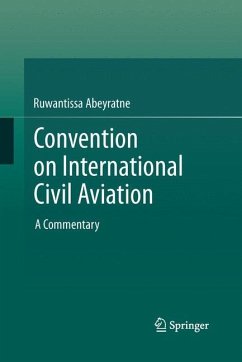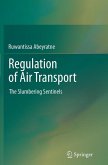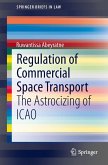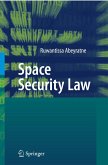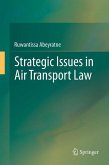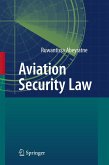This book is both a repertory guide to the Convention on International Civil Aviation (Chicago Convention) as well as a legal analysis of the provisions of the treaty. It traces action taken by the ICAO Assembly and the Council in the implementation of the Convention from the first ICAO Assembly in 1947 until 2012. Above all, the book offers a commentary on the functional and moral fabric of the Chicago Convention, which is not only a multilateral legal instrument that sets out basic principles of air navigation and air transport, but also serves as a moral compass that brings the people of the world together.
The teleological nature of the Chicago Convention is reflected from the outset - from its Preamble which sets the tone and philosophy of the Convention - that aviation builds friendship and understanding among all people, to its technical provisions that range from rules of the air to landing at airports and customs and immigration procedures. The book effectively demonstrates the Aristotelian principle - that rules make people good by forming habits in them. Standardization, or in other words, compliance, is the driver of the Convention that keeps aviation safe, regular, efficient and economical. To that end, this book traces and details the sustained relevance of the Chicago Convention and the efforts of ICAO and the international aviation community towards keeping air transport on track and ready for its future exponential growth, both in letter and in spirit.
The teleological nature of the Chicago Convention is reflected from the outset - from its Preamble which sets the tone and philosophy of the Convention - that aviation builds friendship and understanding among all people, to its technical provisions that range from rules of the air to landing at airports and customs and immigration procedures. The book effectively demonstrates the Aristotelian principle - that rules make people good by forming habits in them. Standardization, or in other words, compliance, is the driver of the Convention that keeps aviation safe, regular, efficient and economical. To that end, this book traces and details the sustained relevance of the Chicago Convention and the efforts of ICAO and the international aviation community towards keeping air transport on track and ready for its future exponential growth, both in letter and in spirit.
From the book reviews:
"The reader will find a thorough analysis, historical background and main instances of actual application both by ICAO bodies and by States ... . The analysis is always solid, well documented and impressive in its encyclopedic thoroughness ... . Any reader interested in international air law will find in Abeyratne's commentary a rich source of solid scholarship and vast knowledge of the author." (Michael Milde, ZLW Zeitschrift für Luft- und Weltraumrecht, Vol. 63 (2), 2014)
"The reader will find a thorough analysis, historical background and main instances of actual application both by ICAO bodies and by States ... . The analysis is always solid, well documented and impressive in its encyclopedic thoroughness ... . Any reader interested in international air law will find in Abeyratne's commentary a rich source of solid scholarship and vast knowledge of the author." (Michael Milde, ZLW Zeitschrift für Luft- und Weltraumrecht, Vol. 63 (2), 2014)

